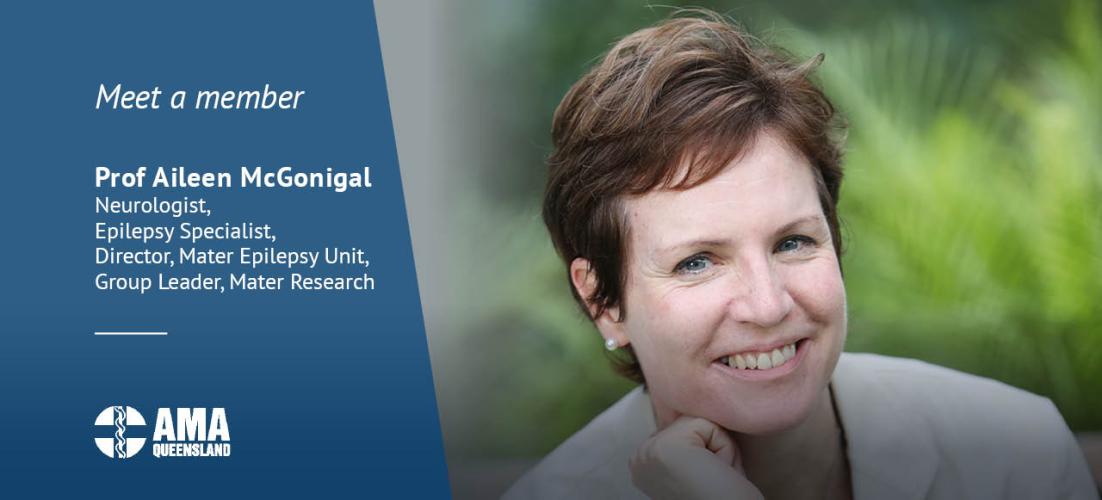Meet a member - Prof Aileen McGonigal

Neurologist, Epilepsy Specialist, Director, Mater Epilepsy Unit, Group Leader, Mater Research
Member for three months
Neurologist, Epilepsy Specialist and Medical Researcher Professor Aileen McGonigal has recently arrived in Australia to serve as Director of the Mater Epilepsy Unit and new Mater Research Group Leader.
Born in Scotland and trained in the UK, Prof McGonigal spent the last 19 years in Marseille, one of the world’s leading centres for epilepsy care, while France has great expertise in epileptology.
“The decision to move to Australia was a big one for our family. I am here with my husband Stephane who is French, and our three boys who are at high school. It really seemed like a wonderful opportunity to share my experience in neurology, epilepsy and neuroscience that I have been very fortunate to obtain in the UK and in France,” said Prof McGonigal.
“In particular, French centres have decades of expertise in a specific tool for pre-surgical evaluation for some epilepsy patients whose seizures are not controlled by medication - in fact as many as one-third of patients with focal epilepsy have this form, known as ‘pharmacoresistant focal epilepsy’.
“In these patients, brain surgery represents the only real chance of becoming seizure free, but this requires precise assessment to determine which part of the brain seizures are coming from. This method, first developed in France over 50 years ago is called stereoelectroencephalography (SEEG) and involves placing depth electrodes (probes) into predefined brain structures by the neurosurgeon in collaboration with the epilepsy team, while the patient is anaesthetised. Then, the patient is woken from anaesthetic and we record their brain activity over several days.
“This can help to precisely pinpoint the zone causing seizures, and also evaluate whether surgery in that zone would be safe. SEEG is now becoming widely used across the world, including some centres in Australia. I would like to develop its use here, in collaboration with other colleagues across Australia, many of whom are also interested in this method, since this could potentially help some eligible patients to be evaluated for possible epilepsy surgery who are currently unable to be successfully treated by other therapies,” said Prof McGonigal.
More than 140,000 Australians are living with epilepsy. Prof McGonigal concedes that treatment for many of these people remains sub-optimal, but is heartened by so many technological developments and therapeutic advances.
Prof McGonigal is excited to join the clinical team at the Mater Hospital in Brisbane, as well as the University of Queensland Faculty of Medicine as an Honorary Professor.
“I will be developing clinical research programs aimed at improving knowledge of epilepsy, and ultimately paving the way for more effective therapies,” she said.
Outside of medicine, Prof McGonigal is eager to discover more of Australia with her family and enjoy more walks in nature, reading and swimming.
“My husband and eldest son have already tried surfing which was great to watch though I was not brave enough to try!
“We love hearing the birdsong here which is very different to the way birds sound in Europe,” she said.
Finally, we asked Prof McGonigal her reason for joining AMA Queensland as soon as she set foot in Oz.
“I am happy to be able to join AMA as this represents connecting with a fantastic community of doctors in Australia, and I look forward to future exchanges with colleagues,” she said.